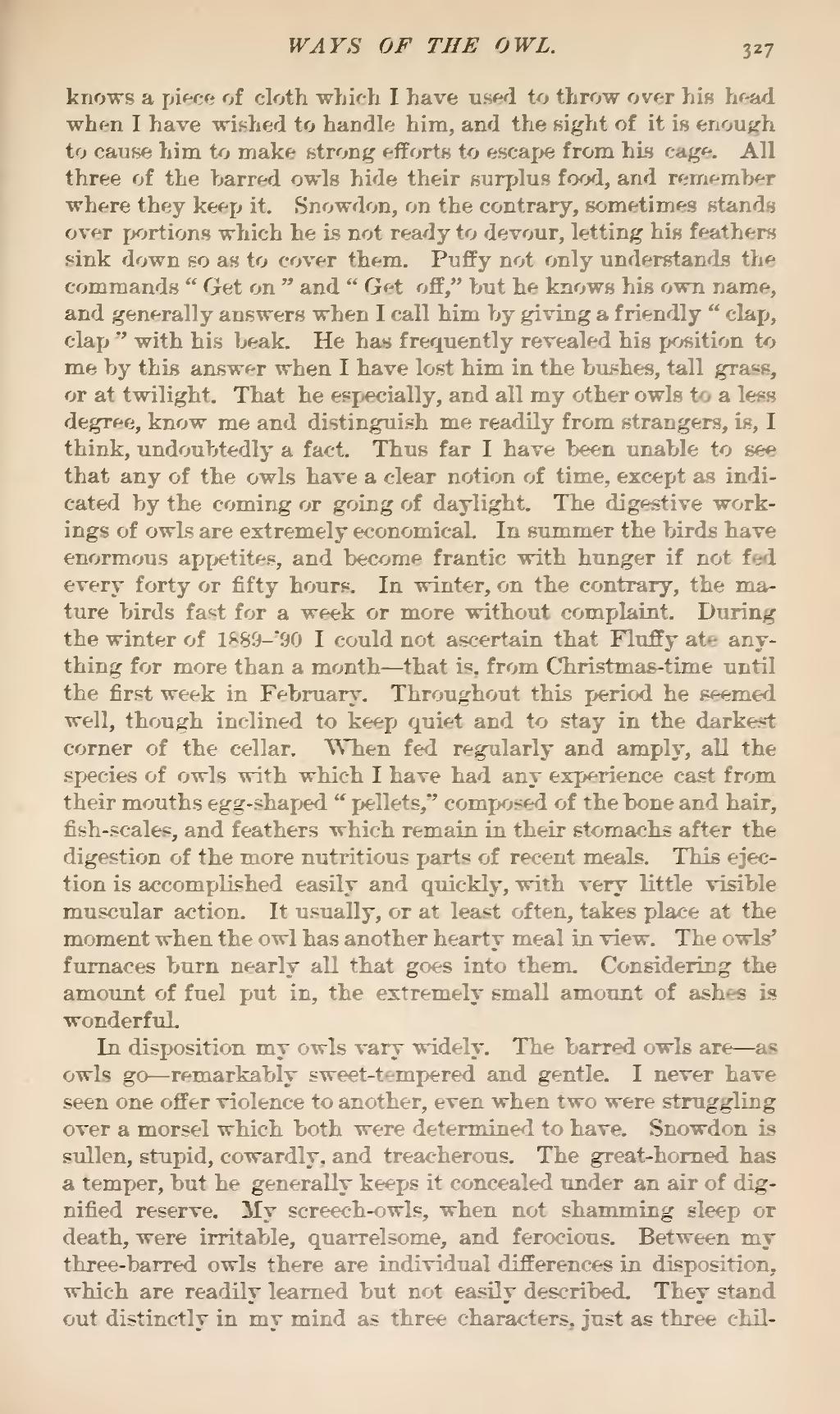knows a piece of cloth which I have used to throw over his head when I have wished to handle him, and the sight of it is enough to cause him to make strong efforts to escape from his cage. All three of the barred owls hide their surplus food, and remember where they keep it. Snowdon, on the contrary, sometimes stands over portions which he is not ready to devour, letting his feathers sink down so as to cover them. Puffy not only understands the commands "Get on" and "Get off," but he knows his own name and generally answers when I call him giving a friendly "clap, clap," with his beak. He has frequently revealed his position to me by this answer when I have lost him in the bushes, tall grass, or at twilight. That he especially, and all my other owls to a degree, know me and distinguish me readily from strangers, is I think, undoubtedly a fact. Thus far I have been unable to see that any of the owls have a clear notion of time, except as indicated by the coming or going of daylight. The a digestive workings of owls are extremely economical. In summer the birds have enormous appetites, and become frantic with hunger if not fed every forty or fifty hours. In winter, on the contrary, the mature birds fast for a week or more without complaint. During the winter of 1889-'90 I could not ascertain that Fluffy ate any thing for more than a month—that is, from Christmas-time until first week in February. Throughout this period he seemed well, though inclined to keep quiet and to stay in the darkest corner of the cellar. When fed regularly and amply, all the species of owls with which I have had any experience cast from their mouths egg-shaped "pellets," composed of the bone and hair, fish-scales, and feathers which remain in their stomachs after the digestion of the more nutritious parts of recent meals. This ejection is accomplished easily and quickly, with very little visible muscular action. It usually, or at least often, takes place at the moment when the owl has another hearty meal in view. The owls’ furnaces burn nearly all that goes into them. Considering the amount of fuel put in, the extremely small amount of ashes is wonderful.
In disposition my owls vary widely. The barred as—owls go—remarkably sweet tempered and gentle. I never have seen one offer violence to another, even when two were struggling over a morsel which both were determined to have. Snowdon is sullen, stupid, cowardly, and treacherous. The great-horned has a temper, but he generally keeps it concealed under an air of dignified reserve. My screech-owls, when not shamming sleep or death, were irritable, quarrelsome, and ferocious. Between three-barred owls there are individual differences in disposition, which are readily learned but not easily described. They stand out distinctly in my mind as three characters, just as three chil-

